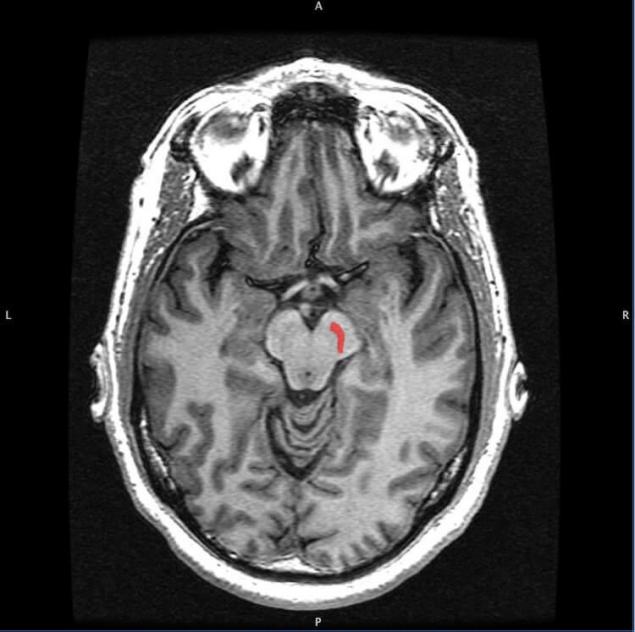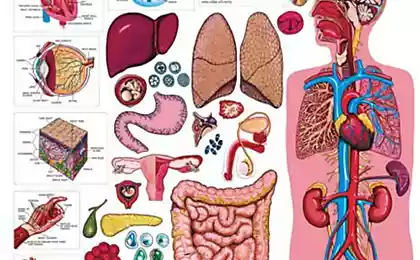548
Parkinson's disease: 20 years before it will be too late
Scientists from the School of medicine, University center of health Sciences of Texas came to a very sad conclusion: you can for 20 years to live, walk and not know what your brain is already developing Parkinson's disease, and when symptoms appear, it will be too late. The authors were able to show what happens to the neurons at an early stage in a mouse model. A study published in the Journal of Neuroscience.
A group of neuroscientists under the leadership of Professor Michael Beckstead in their study wanted to achieve two goals: to understand whether it is possible to create a drug that stops the disease at "mid-way" and to lengthen the time during which patients with Parkinson's disease can lead a full life.

For the study, researchers used mouse model MitoPark, which represent a model of Parkinson's disease. These mice modified so that only in the dopaminergic neurons of their black-body inhibited the mitochondrial activity. Thus, at birth, the mouse is perfectly healthy, and the first symptoms (tremor) appear around the age of 20 weeks. The researchers tracked the status of the dopaminergic neurons of the black body of the mice at three periods of their life before the onset of symptoms: 6-10 weeks 11-15 weeks and 16 weeks.
It turned out that the decrease in the function of neurons occurred gradually and in three directions:
"The first time we can see what happens in the time window before the disease noticeably takes possession of the patient, but changes in the brain happen. Almost everything that we measured in these cells is decreased when it is, surprisingly, long before all of these changes affected the movements of the animals," says Becksted.
Also interesting: the British defines Parkinson's disease by smell
Arc — pen which improves handwriting of people with Parkinson's disease
If we extrapolate the data of the group of Buxted people, it turns out that the degenerative process begins 20 years before symptoms and they can be found.
It is curious that in older mice with already manifested symptoms were observed another change: the increase in the expression of genes responsible for the increased electrical activity of neurons.
"It's late "acquisition" in the disease process. We believe that the cells are trying to compensate for the decrease in electrical activity. This probably explains how people can remain free from symptoms so long in Parkinson's disease, even if 30 per cent or more of their dopaminergic neurons have died," says Dr. Beckstead.published
P. S. And remember, only by changing their consumption — together we change the world! ©
Join us in Facebook , Vkontakte, Odnoklassniki
Source: www.neurotechnologies.ru/article_news?id=405
A group of neuroscientists under the leadership of Professor Michael Beckstead in their study wanted to achieve two goals: to understand whether it is possible to create a drug that stops the disease at "mid-way" and to lengthen the time during which patients with Parkinson's disease can lead a full life.

For the study, researchers used mouse model MitoPark, which represent a model of Parkinson's disease. These mice modified so that only in the dopaminergic neurons of their black-body inhibited the mitochondrial activity. Thus, at birth, the mouse is perfectly healthy, and the first symptoms (tremor) appear around the age of 20 weeks. The researchers tracked the status of the dopaminergic neurons of the black body of the mice at three periods of their life before the onset of symptoms: 6-10 weeks 11-15 weeks and 16 weeks.
It turned out that the decrease in the function of neurons occurred gradually and in three directions:
- the number of dopaminergic neurons in a black body decreased
- decreased the number of interneuronal connections,
- decreasing the electrical activity of neurons.
"The first time we can see what happens in the time window before the disease noticeably takes possession of the patient, but changes in the brain happen. Almost everything that we measured in these cells is decreased when it is, surprisingly, long before all of these changes affected the movements of the animals," says Becksted.
Also interesting: the British defines Parkinson's disease by smell
Arc — pen which improves handwriting of people with Parkinson's disease
If we extrapolate the data of the group of Buxted people, it turns out that the degenerative process begins 20 years before symptoms and they can be found.
It is curious that in older mice with already manifested symptoms were observed another change: the increase in the expression of genes responsible for the increased electrical activity of neurons.
"It's late "acquisition" in the disease process. We believe that the cells are trying to compensate for the decrease in electrical activity. This probably explains how people can remain free from symptoms so long in Parkinson's disease, even if 30 per cent or more of their dopaminergic neurons have died," says Dr. Beckstead.published
P. S. And remember, only by changing their consumption — together we change the world! ©
Join us in Facebook , Vkontakte, Odnoklassniki
Source: www.neurotechnologies.ru/article_news?id=405























